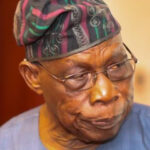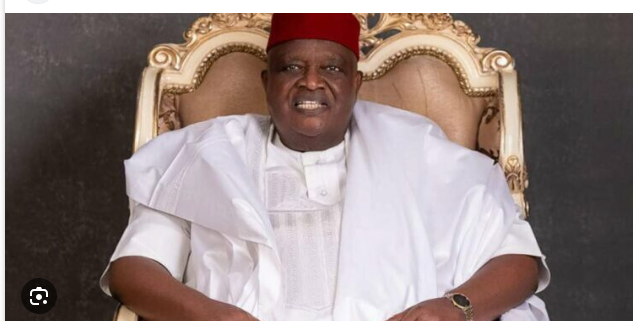Chief Emmanuel Iwuanyanwu died on Thursday, July 25, after a brief illness.
Here are ten things you may not have known about the late President General of Ohanaeze Ndigbo.
- He was born on September 4, 1942 to Pa Bernard Iwuanyanwu and Madam Hulder Iwuanyanwu of Umuohii Atta in Ikeduru Local Government Area of Imo State.
- Iwuanyanwu studied Civil Engineering at the University of Nsukka. His extraordinary brilliance earned him a scholarship from the government of Germany covering fees, boarding, and holiday tickets and feeding to study in the country. The award was for a few talented students of African descent.
- During the Nigerian Civil War, Iwuanyanwu was drafted into the Biafra Research and Production (RaP) Directorate headed by Professor Benjamin Chukwuka Nwosu, a nuclear physicist. Iwuanyanwu served in the Rocket Unit. His engineering skills contributed to the invention of the deadly Ogbunigwe, the weapon that helped Biafran forces halt the advances of their Nigerian counterpart.
- Iwuanyanwu later served as an Intelligence officer on the Biafran side, rising to the rank of Captain and commanding the Biafran Combat Engineering Military Intelligence.
- In 1976, Iwuanyanwu worked in the engineering firm Hardel owned by two Americans, Messrs. Harper and Delano. Iwuanyanwu later acquired the company from them and renamed it Hardel and Enic Construction Company. His business grew into a conglomerate of over 20 companies, including shipping lines, airlines, Insurance, media, sports, etc.
- In 1990 after then-military president Ibrahim Babangida lifted the ban on political activities, Iwuanyanwu threw his hat in the ring for the presidency under the platform of the National Republican Convention (NRC). Adamu Ciroma became the party’s presidential candidate while Iwuanyanwu became his running mate. Babangida later dissolved the process and fresh primaries were held for the two major political parties at the time – NRC and Social Democratic Party (SDP).
- In 1997, Iwuanyanwu signalled interest in running for the presidency under the platform of the UNCP against General Sani Abacha, the then-head of state. Other politicians stayed away from the contest for fear of Abacha. Later, General Abacha reportedly considered arresting Chief Iwuanyanwu on a trumped-up allegation of plotting against his government. Iwuanyanwu later stepped down from running for president.
- After Abacha’s death and General Abdulsalami Abubakar showed commitment to returning Nigeria to a democratic republic, Iwuanyanwu formed a political association known as the National Congress in 1998. This evolved into the United Nigeria People’s Party (UNPP). He later led many members of the UNPP into the All People’s Party (APP), a party in which he was a founding member. By late November 1998, Iwuanyanwu was adopted as the APP’s consensus presidential candidate. Olu Falae was later chosen as the APP candidate. Iwuanyanwu along with his supporters backed Obasanjo of the PDP who later won the election.
- Chief Iwuanyanwu was the founder of Iwuanyanwu National Football Club (now Heartland F.C.), which won several national and international championships.
- . Iwuanyanwu was also the founder of Champion Newspapers










More Stories
Military air strikes kill several terrorists in failed attack on Marte
Buhari’s ex-AGF, Malami, rallies opposition against Tinubu, says country enmeshed in severe poverty, insecurity
Pastor’s driver mauls four siblings to death with pestle